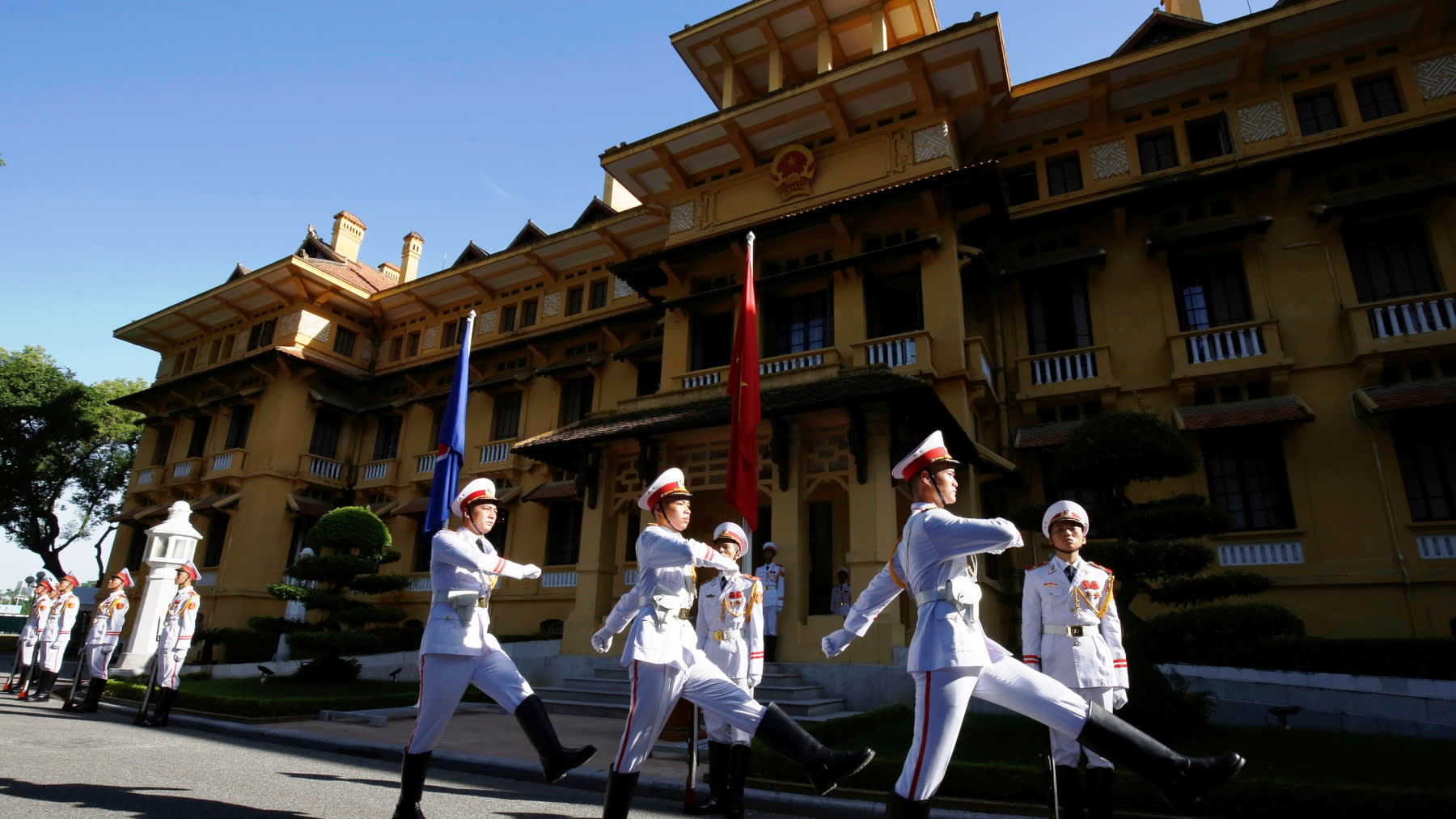Special to WorldTribune.com
UNITED NATIONS — “Sometimes you have to walk,” was President Donald Trump’s stunning conclusion to the U.S./North Korea Summit in Hanoi, where political great expectations seemed to get ahead of the hard reality that Pyongyang’s nuclear weapons program created an impasse to an expected diplomatic agreement between the two rival states.
The setting was as important as the agenda; the United States President meeting with the North Korean leader Kim Jong-Un in the capital city of one of America’s principal cold war antagonists, Hanoi. But more than forty years after the fall of South Vietnam to the North Vietnamese communists, a unified Vietnam has at long last emerged as a booming economic success story which vividly contrasts with Pyongyang’s moribund socialist system.

Still the symbolism was striking; Vietnam was a divided country in which the USA fought its most politically divisive war. Korea remains a divided country to this day, but equally was the setting of a bitter conflict ended by a truce and a continuing military standoff. Yet the two day Summit in the Vietnamese capital between the contemporary foes seemed to soften sharp rhetorical edges but failed, at least for now, to solve any substantive issues between the U.S. and the quaintly titled Democratic People’s Republic of Korea.
Harry Kazianis, Director of Korean Studies at the Centre for the National Interest, said that no agreement was better than a bad one. He added there would be “nothing worse than signing a deal just to get something.”
Clearly diplomats should have focused on signing a statement, leading to a formal Peace Treaty, ending the Korean War and thus replacing the 1953 Armistice. Denuclearization will not happen overnight.
Early in 2018 there was still a possibly of a military conflict between the U.S. and Pyongyang over nuclear tests, missile proliferation and the statements by Kim Jong-Un’s regime of targeting Hawaii, Guam and likely Okinawa.
Correspondingly the Trump Administration threatened fire and fury against North Korea.
But what a difference a year makes. South Korea’s successful PyeongChang Winter Olympics brought about a political thaw between both Pyongyang and Seoul and moreover created the
conditions for a dramatic downshift in tensions on the peninsula. Donald Trump then took a proactive political gamble and pressed for the high stakes Singapore Summit which defused the rhetoric as much as the immediate threat.
As surprisingly, a good personal chemistry quickly appeared to emerge between President Trump and Kim Jong-Un, a figure reviewed as “little rocket man,” just months earlier.
Realistically speaking there have been no North Korean nuclear tests nor ballistic missile firings since the historic Singapore Summit. Clearly the problem has not been solved but the deadly nuclear countdown has stopped ticking.
Nonetheless disarmament is not an event but a slow, deliberate and monitored process.
The real issue now to be build on the disappointment at Hanoi with a clear political road map to achieve North Korea’s step by step denuclearization.
Although an agreement may have been within reach at the Hanoi meeting, when Kim Jong-Un pushed to scrap the stifling UN economic sanctions on North Korea resulting from DPRK’s nuclear and missile testing, Donald Trump refused to budge. Trump later told the Sean Hannity program on Fox News TV Network that such a deal “would not have been good for our country,” but did not discount the possibility of a future agreement.
Sue Mi Terry, Senior Fellow and Korean Chair of Washington’s CSIS wrote, “deciding against a deal at this time is better than accepting a bad deal. A bad deal is one that would have substantially weakened U.S. national security interests and our alliance relationships in the region.”
Importantly Japan must be “kept in the loop” by the USA in each step of the discussion as Tokyo remains both a U.S. partner as well as undisputed military target of the North Koreans.
Dr. David Kang Chair of Korean Studies at University of Southern California wrote, “North Korea is not a problem to be solved, but managed. There is no combination of carrots and sticks that will make North Korea denuclearize, democratize, and also stop its human rights abuses.”
South Korea and the USA must keep tight, close and transparent political and security ties. The mutual defense treaty is key to maintaining the peace on the peninsula until such time when there is a bilateral Korean stakeholder solution to seventy-four year dilemma of disunity.
In the meantime deterrence, the product of strong defense ties between Seoul and Washington remains paramount.
John J. Metzler is a United Nations correspondent covering diplomatic and defense issues. He is the author of Divided Dynamism the Diplomacy of Separated Nations: Germany, Korea, China (2014). [See pre-2011 Archives]

 By
By